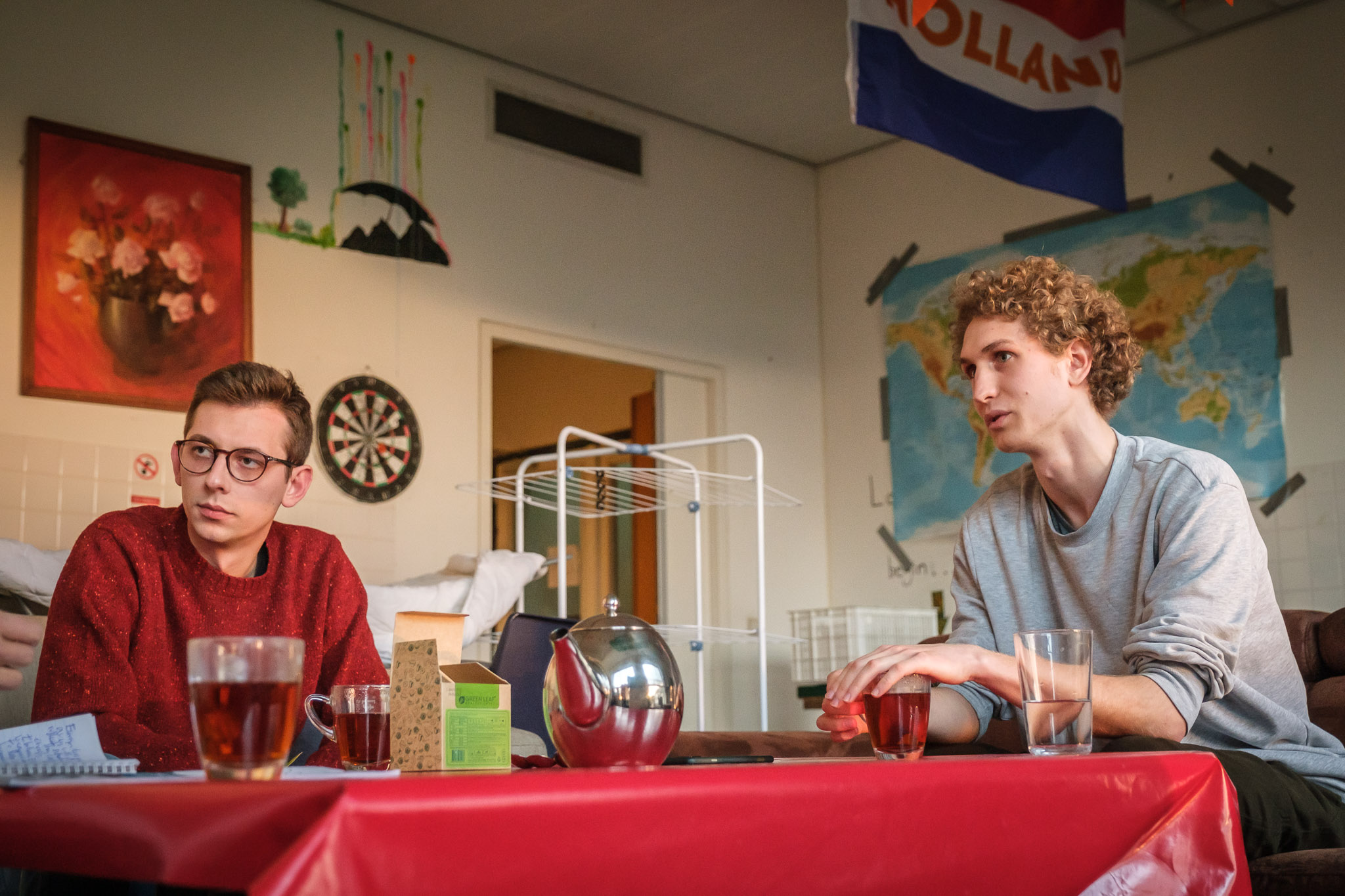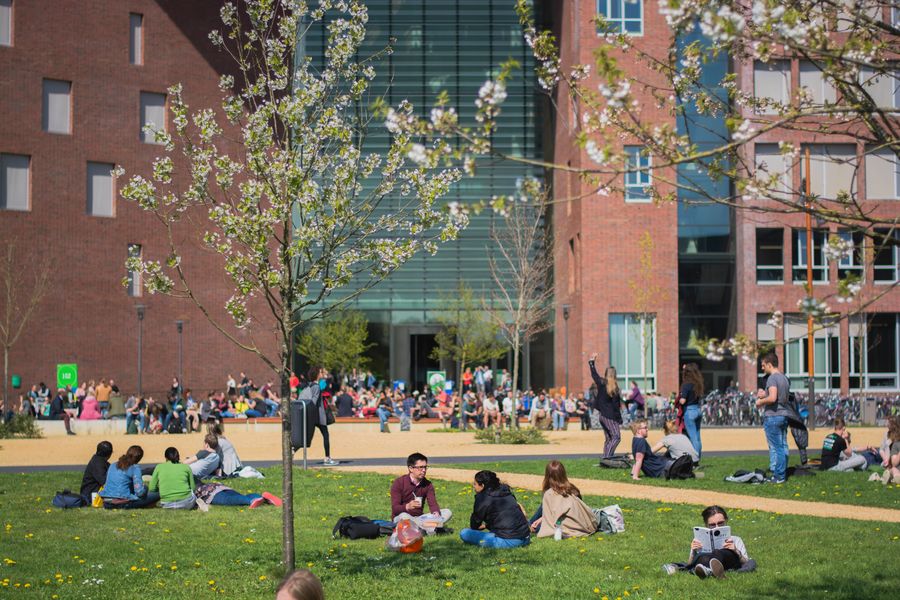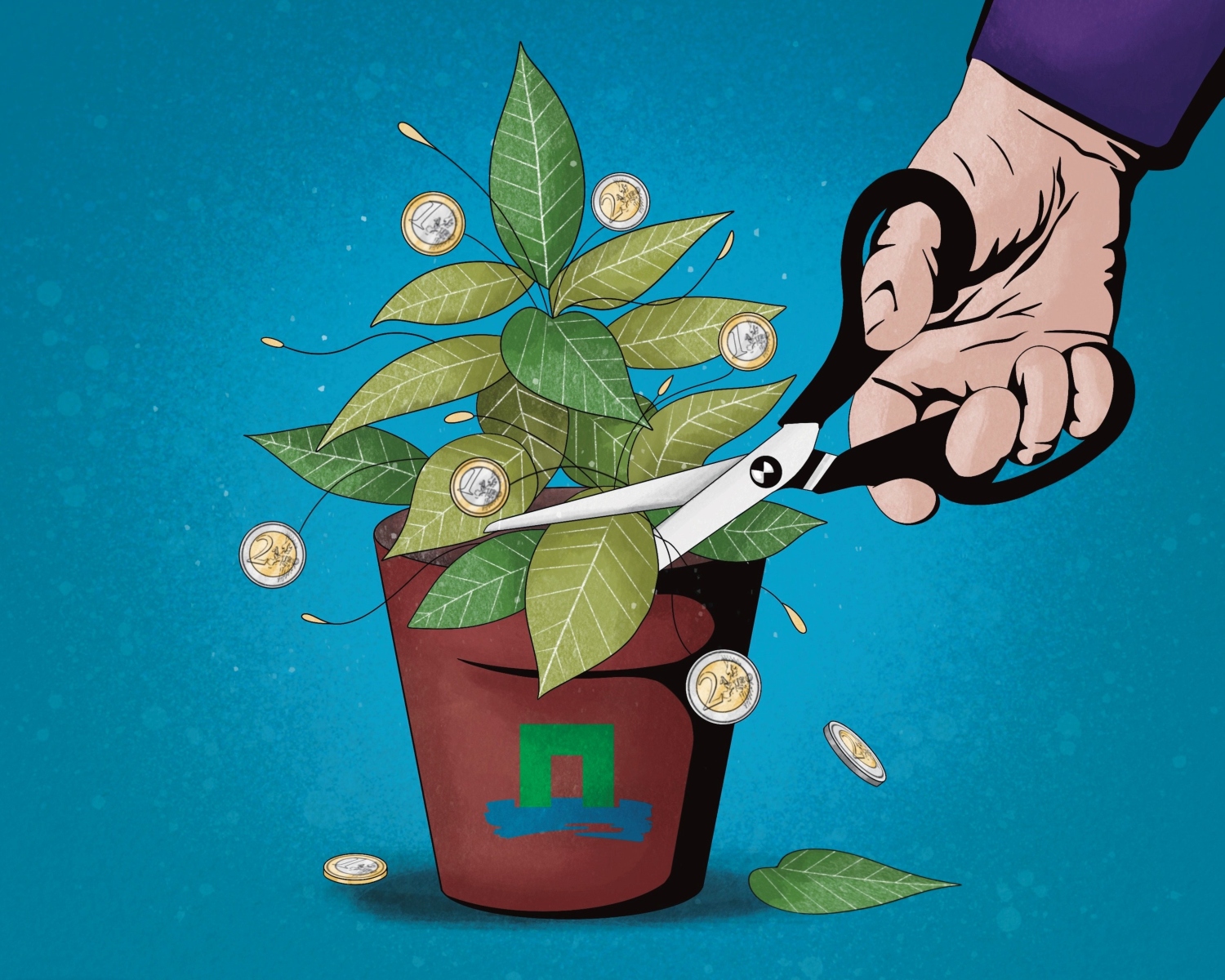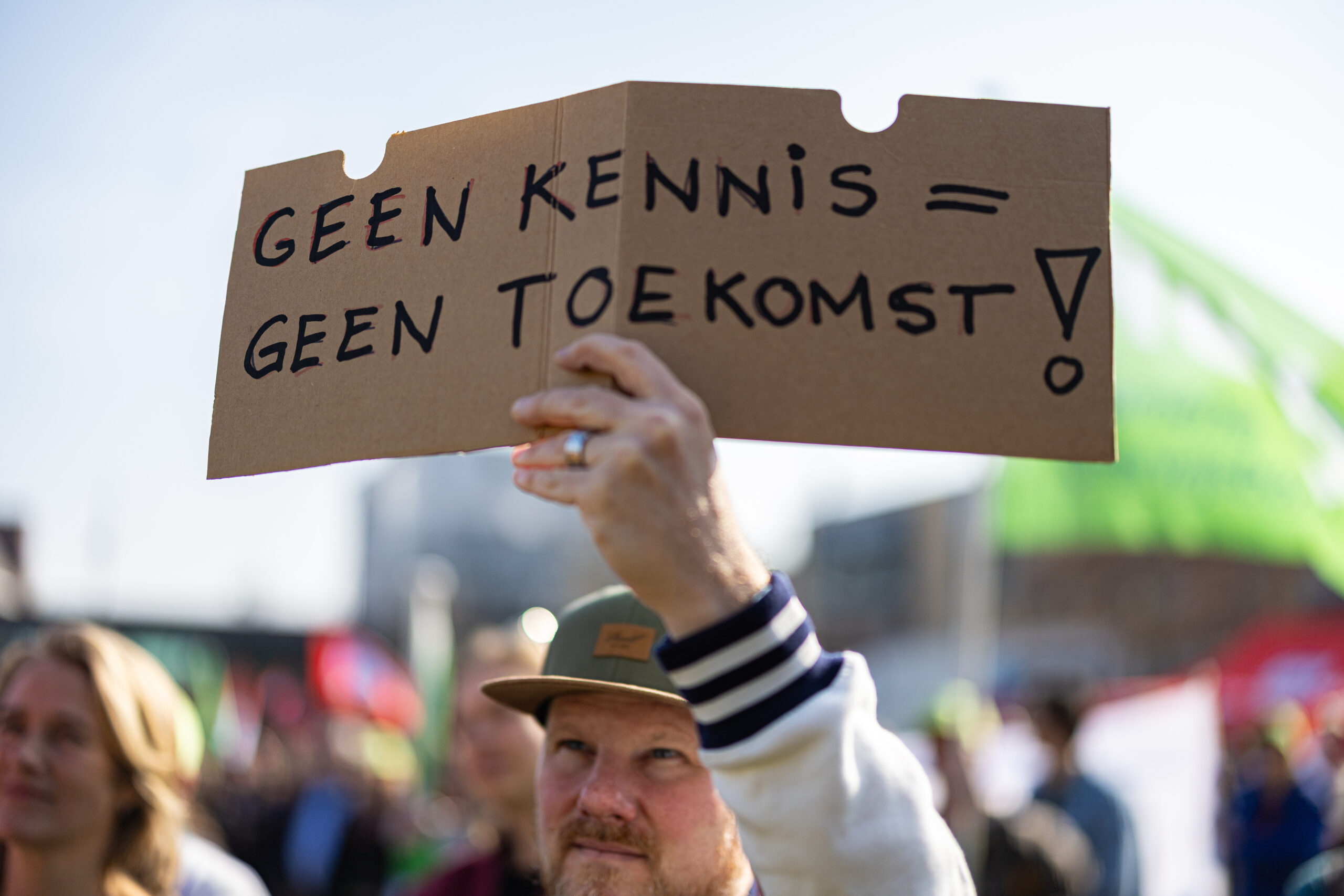Slava and Andrei both study in Wageningen and live in the same student house. How do they feel about the war in Ukraine?
Slava: ‘I am from Kyiv. It is sad that the city I grew up in will not be the same. Part of my family is still in Kyiv. Another part of the family lives in Italy.’
Andrei: ‘I am from Volgograd, a city in the south of Russia. I feel terrified by the situation. Because of the war, people are dying. I am angry with my government; I don’t want people to be killed.’
Andrei, do you know what Putin wants?
Andrei: ‘Nothing he says is true. I think his goals are different from the goals of the nation. He may not care about the economic state of the population. He only cares about political power. But we do not know anything for certain. A few weeks ago, Putin said that he wouldn’t attack, now he has attacked. His slogan now is demilitarisation and denazification, but I don’t know the real reason. Our government lies to us all the time. For us, the Russian people, we have little influence. They can do whatever they like.’
Slava: ‘Ukraine was always seen as a buffer zone between Europe and Russia. We have more aspirations. We looked for options to join the EU and NATO. In the past 8 years, we fought a war against the Russian-backed separatists in Donbas, so Ukraine was a shield and reliable partner for Europe. We kept the conflict out of Europe, but now this conflict is at Europe’s doorstep. A line has been crossed. I believe the EU needs to support us and send weapons and aid. Not for us to attack Russia but to keep what we have.’
Slava: ‘I have friends and family in Kyiv who now must live in bomb shelters. It is surreal. The metro line in Kyiv was constructed deep under the ground so that it could serve as a bomb shelter back during the Soviet Union days at the height of the Cold War. I just never thought in my lifetime people would have to use it as such. We are safe in Wageningen, where we can try to find ways to help Ukraine. Here, the next generation can connect and try to make amends for what the Russian government has done.’
Is Ukraine a divided country, with a Russian-oriented eastern part and a Europe-oriented western part?
Slava: ‘It is a fact that we have different people, but we are a sovereign nation, and we decided to look to the West. But we have a lot of cultural connections with Russia. My grandmother is Russian, she spoke Russian, and she never felt discriminated in Ukraine. Some speak Ukrainian, and some speak Russian. We don’t have a problem with using the Russian language. It is a free country.’
Andrei: ‘We are interconnected. My family is Russian, but I have a Ukrainian last name, Tertienko. Ukrainian names in Russia are quite common.’
How do we achieve peace?
Andrei: ‘I just read that they want to meet to discuss the status of Ukraine. I don’t know if they can find a compromise.’
Slava: ‘The people of Ukraine are determined to stand their ground. They want the Russians to leave. The government of Ukraine will not surrender. That is no longer possible after the invasion.’
Andrei: ‘I agree on that.’
Do you see any compromise?
Slava: ’We must find a compromise to stop the war. There is no compromise on sovereignty and integrity for any nation. Still, we can discuss and find a way to respect each other’s safety and strategic choices. For the breakaway regions in Donbas, we can discuss a solution where the local population will have a chance to have their voices heard, but in democratic and fair elections not under threat.’
Andrei: ‘Putin will not go for such an agreement. He wants to change the government of Ukraine. He wants a pro-Russian government.’
Slava: ‘That will not last long. We will have a new Maidan revolution.’
Andrei: ‘Maybe war can stop, but we cannot predict the actions of our government. It is important to understand that our government doesn’t represent Russia and the values of the population. We do not know how many people actually support the war or the independence of Donbas because we have no reliable sociological surveys anymore. The thing is that the population is under the influence of propaganda every day. Still, even considering this propaganda, my friends in Russia don’t support this war and are disgusted. We see an increasing number of open letters and public speeches of celebrities, and even several oligarchs are asking the government to stop the violence. It is important to know: Russian population is not the government.’
‘The government is using fake news to legitimise its actions and has created a police state in the past ten years to suppress mass protests. In Russia, you get arrested and beaten when you express your opinion. Many people get sentenced to prison for just going to a peaceful protest. Russian people would protest a lot, but propaganda, the risk of arrest and violence and destruction of the whole opposition really suppresses the protest activity.’
Slava: ‘Ukraine is defending itself right now, we want to choose what to do with our lives, and we want Putin to understand there is room for everybody in this world. We don’t want to compromise our friendship with Russia but want our own path.’
Do you want to go back to your country?
Slava: ‘I don’t see myself working in Ukraine at the moment. My goal is to do research on biodiversity in agroforestry in tropical regions in the world. However, I would love to come back and visit my friends and family when this is all over, and I hope it will be sooner rather than later.’
Andrei: ‘I would like to go back to my friends in Russia, but I don’t want to live in Russia. The problems in Russia get worse every year. Life in Russia isn’t good. Here, we are equal to everybody else. I am studying Environmental Sciences, and I hope to help the earth.’

 Slava Shevchuk from Ukraine (left) en Andrei Tertienko from Russia and live in the same student house. Photo Guy Ackermans
Slava Shevchuk from Ukraine (left) en Andrei Tertienko from Russia and live in the same student house. Photo Guy Ackermans 

